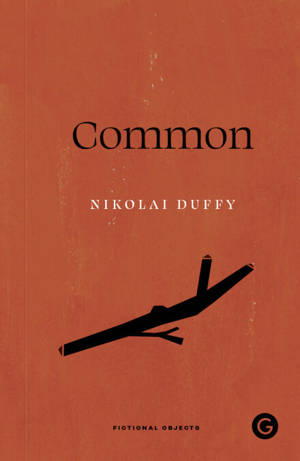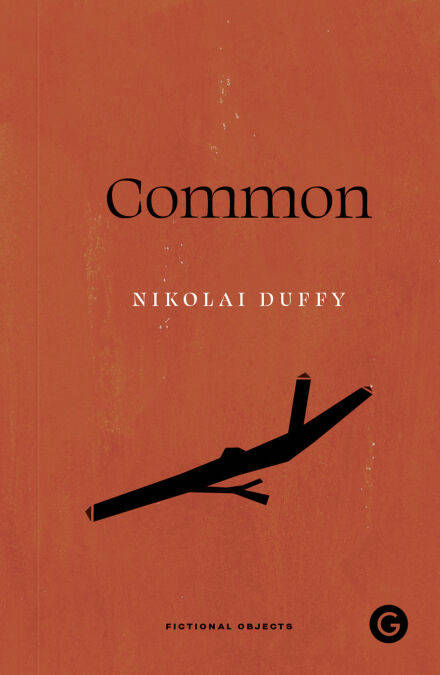
- Retrait gratuit dans votre magasin Club
- 7.000.000 titres dans notre catalogue
- Payer en toute sécurité
- Toujours un magasin près de chez vous
- Retrait gratuit dans votre magasin Club
- 7.000.0000 titres dans notre catalogue
- Payer en toute sécurité
- Toujours un magasin près de chez vous
17,73 €
+ 17 points
Description
A coming to terms with marriage and career, the life-long impact of a father's alcoholism, and an aunt's insistent example to live an unroofed life.
"I had gone to the common under the vague impression that I wished to recapture something of a life I no longer possessed."
Engaging with fiction, auto-fiction, place writing, and visual cultures, as well their various intersections with solitude, privilege, gender, whiteness, ageing, memory, and illness, Common is an introspective novel about loss, disillusionment, and the attempt to reconnect with both the legacies of the past and the intransigence of the present.
Following the death of his aunt, Abilene, in between two national lockdowns the narrator, Robert, travels from his home near Manchester to his childhood home in Hampshire to settle the affairs of her estate. Upon arriving at his aunt’s house and confronted with all the debris of a life left behind, Robert goes for a walk on nearby Ludshott Common, a large area of ancient heathland.
This walk becomes the catalyst for a number of transitions. Robert takes the sudden decision to abandon his role as executor and instead builds a hut on the common, where he stays for seven days. Robert is not entirely sure why he has done this, nor what he is necessarily hoping to achieve by doing so, uncertain whether he is searching for answers from this landscape or whether he wishes more simply for a break from his present circumstances. The ensuing first-person narrative is a portrait of living in nature and the reasons for the profound influence of Abilene on Robert. The novel records the building of the hut, Robert’s walks on the common, and his subsequent attempts to come to terms with his marriage and career, parenthood, white male privilege, art and music, the life-long impact of his father's alcoholism, and his aunt's insistent example to live an unroofed life.
Common is concerned with quietness and circularity and, by extension, with implicitly challenging fictional conventions of cause and effect. The novel’s drama revolves around the effects and layers of damage, but from the perspective of what is neither quite confronted nor named.
"I had gone to the common under the vague impression that I wished to recapture something of a life I no longer possessed."
Engaging with fiction, auto-fiction, place writing, and visual cultures, as well their various intersections with solitude, privilege, gender, whiteness, ageing, memory, and illness, Common is an introspective novel about loss, disillusionment, and the attempt to reconnect with both the legacies of the past and the intransigence of the present.
Following the death of his aunt, Abilene, in between two national lockdowns the narrator, Robert, travels from his home near Manchester to his childhood home in Hampshire to settle the affairs of her estate. Upon arriving at his aunt’s house and confronted with all the debris of a life left behind, Robert goes for a walk on nearby Ludshott Common, a large area of ancient heathland.
This walk becomes the catalyst for a number of transitions. Robert takes the sudden decision to abandon his role as executor and instead builds a hut on the common, where he stays for seven days. Robert is not entirely sure why he has done this, nor what he is necessarily hoping to achieve by doing so, uncertain whether he is searching for answers from this landscape or whether he wishes more simply for a break from his present circumstances. The ensuing first-person narrative is a portrait of living in nature and the reasons for the profound influence of Abilene on Robert. The novel records the building of the hut, Robert’s walks on the common, and his subsequent attempts to come to terms with his marriage and career, parenthood, white male privilege, art and music, the life-long impact of his father's alcoholism, and his aunt's insistent example to live an unroofed life.
Common is concerned with quietness and circularity and, by extension, with implicitly challenging fictional conventions of cause and effect. The novel’s drama revolves around the effects and layers of damage, but from the perspective of what is neither quite confronted nor named.
Spécifications
Parties prenantes
- Auteur(s) :
- Editeur:
Contenu
- Nombre de pages :
- 192
- Langue:
- Anglais
- Collection :
Caractéristiques
- EAN:
- 9781915983435
- Date de parution :
- 13-10-25
- Format:
- Ebook
- Protection digitale:
- Adobe DRM
- Format numérique:
- ePub

Les avis
Nous publions uniquement les avis qui respectent les conditions requises. Consultez nos conditions pour les avis.






